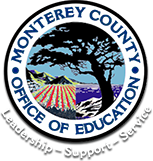California
Adult Education Innovations

Monterey County Office of Education Alternative Education
Program Puts Incarcerated Youth Back on Path to Work
 The Challenge
The Challenge
Students in the Monterey County Office of Education Alternative Education (MCOEAE) program, a part of the Salinas Valley Adult Education Consortium, have significant secondary education gaps that cannot be addressed by traditional means. These gaps are the result of incarceration or probation, and many of these students have experienced severe poverty or other trauma in the past. These factors make it nearly impossible to build a pathway toward a viable, high-wage career or to prepare for success in postsecondary education or training. The MCOEAE needed to provide services for youth 18 years or older for whom there was not only less formal programming, but also limited resources for creating or expanding college and career-prep services for this vulnerable population.
The Solution
MCOEAE now brings workforce preparation and career technical education to its incarcerated/ probationary youth 18 years or older with AEBG funds, in addition to leveraging other funds and partnerships. Basic-skills tutoring is accomplished through partnerships with CSU Monterey Bay education department, Jump into Math, and #1 Academia de Servicio de Tutoría. Hands-on training in diesel mechanics, transportation, aviation, and information technology career pathways is provided through partnerships with local community colleges, the local workforce development board, local nonprofit Loaves, Fishes & Computers and the Oracle Corp. MCOEAE offers support services and individualized college and career counseling, and partners with the nonprofits The Epicenter and Turning Point to provide workforce readiness, paid internship/work-study placement and ongoing job- placement support.
Outcomes
The extensive partnership network, engaging programs and wrap-around services have been significant contributors to the program’s success. More than 350 students have gained work experience, earned high school diplomas or progressed through various college and career pathways. A large number of these students have been hired after an internship, acquired industry certifications or transitioned to community college career technical education program. Based upon past success, the program will expand to include Emergency Medical Responder/Emergency Medical Technician training.


